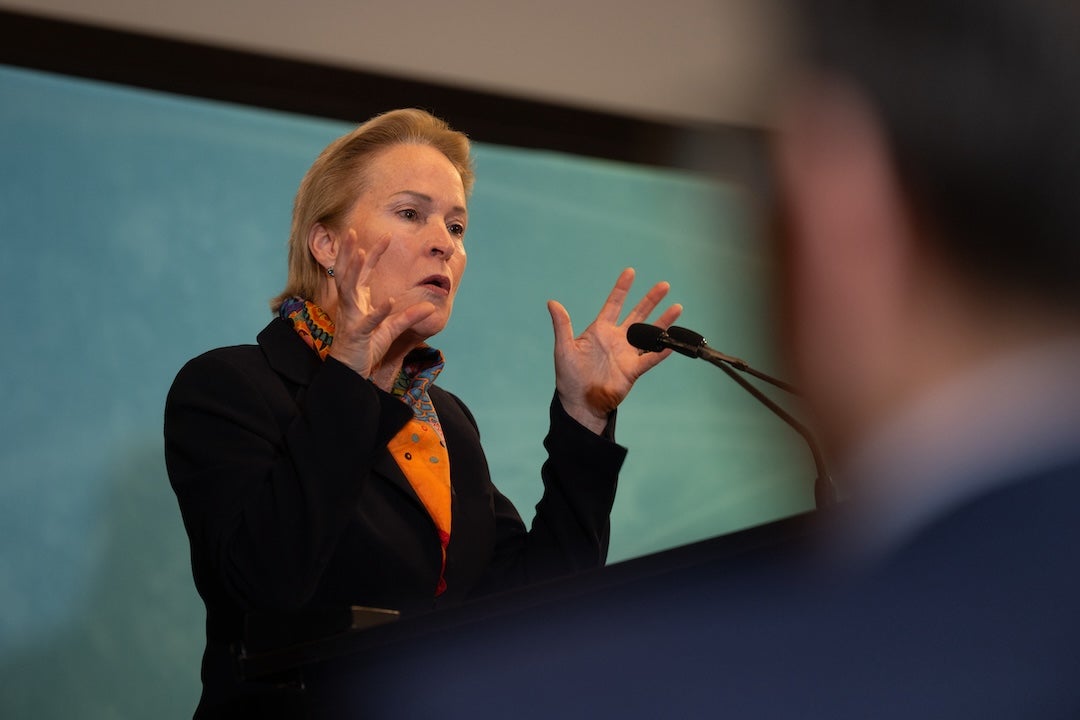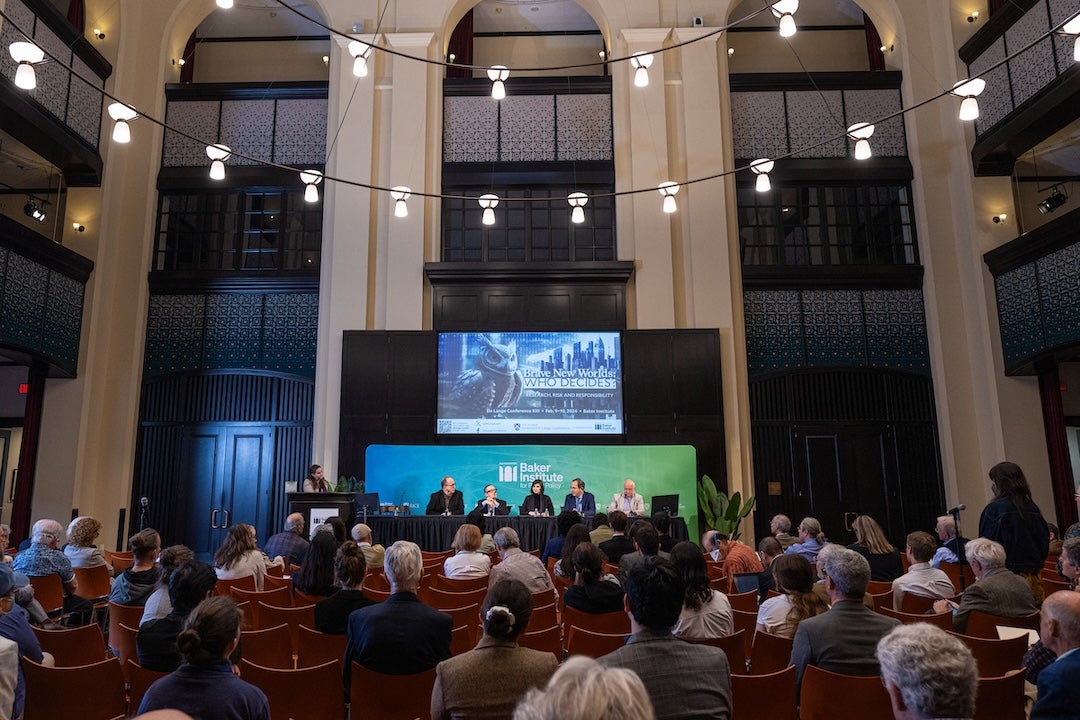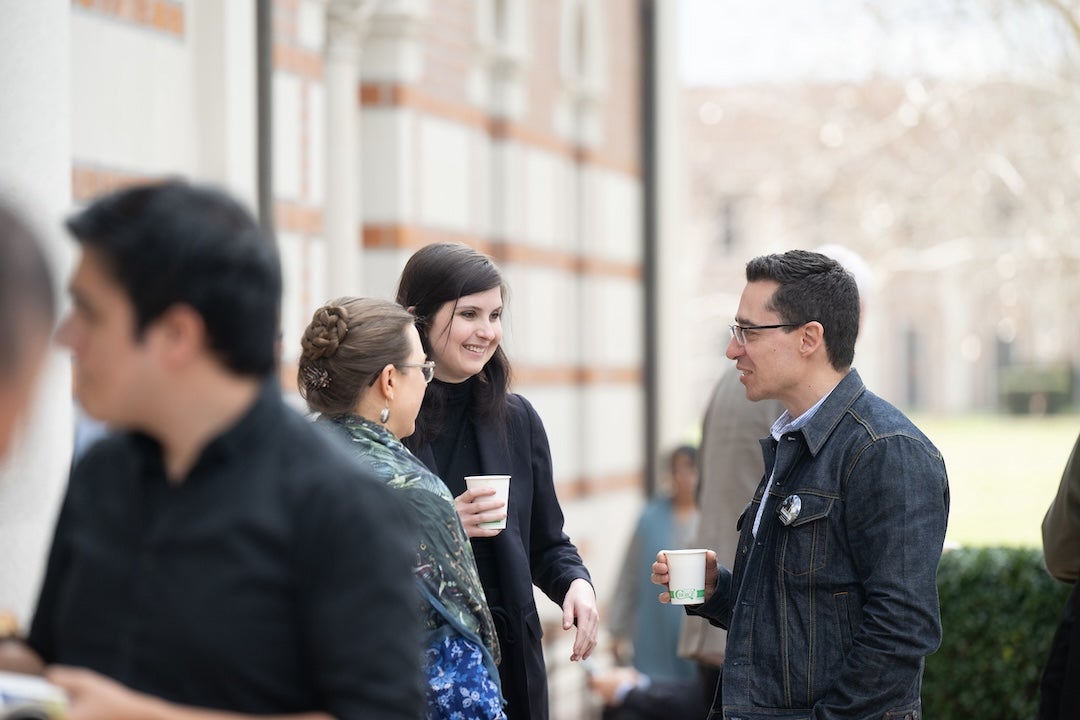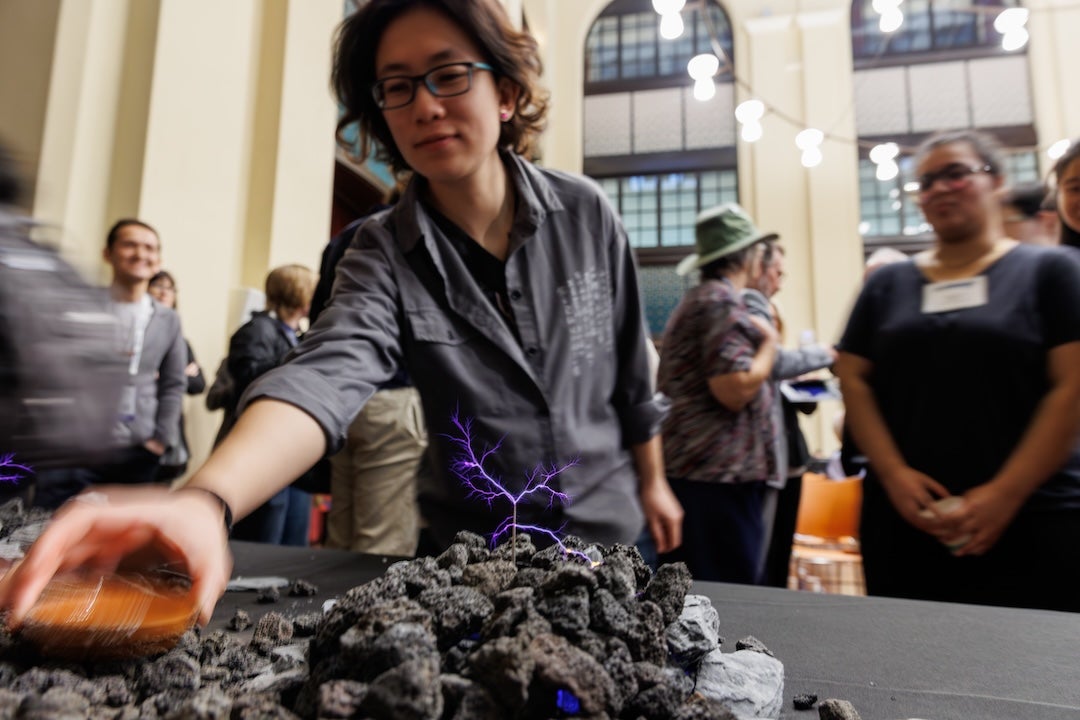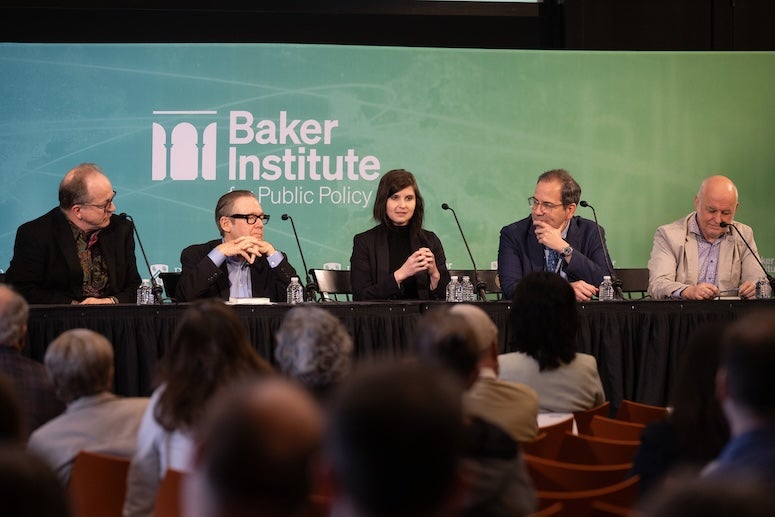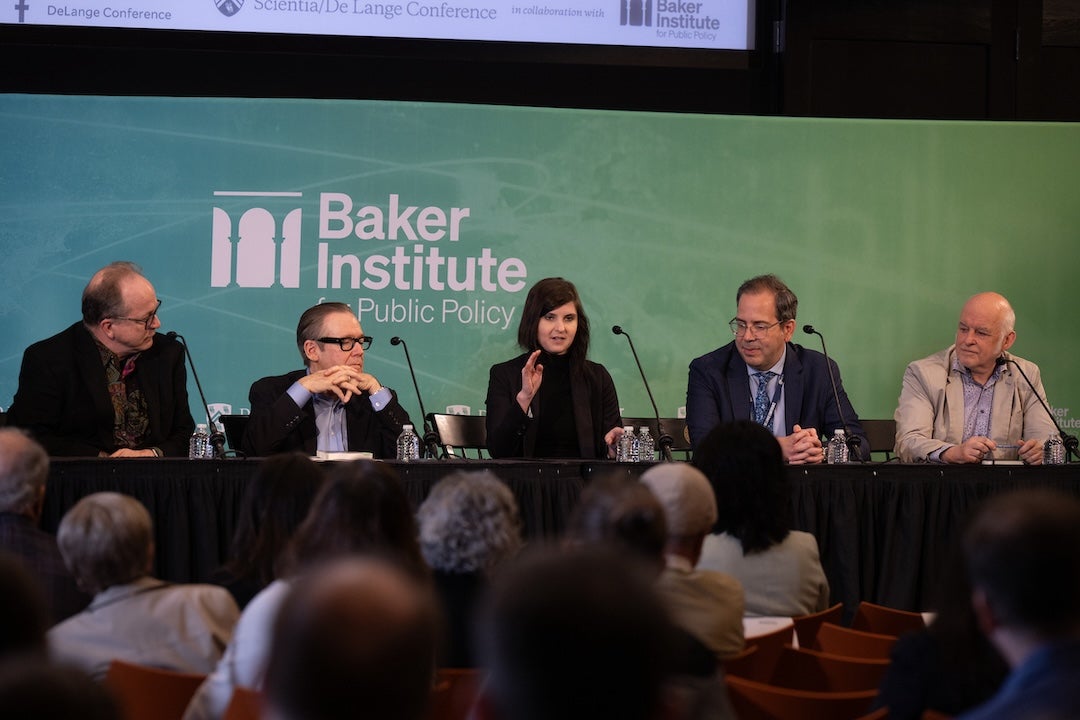
Rice University’s 2024 biennial De Lange Conference featured an array of distinguished speakers, artists and researchers who engaged in thought-provoking discussions regarding timely technological and environmental topics Feb. 9-10 at the Baker Institute for Public Policy.
With a keynote address from Nobel laureate and renowned chemist Frances Arnold, lectures given by captivating speakers like former Rolling Stone reporter and practical futurist Michael Rogers and artistic interventions presented by perspective-altering artists like Trevor Paglen, this year’s De Lange Conference provided a star-studded roster that explored the future of biology, technology and climate change and addressed the question: Who decides these futures?
With a full mix of disciplines and approaches represented — natural and social scientists, humanists, artists, journalists, legal scholars and more — the conference was a fully multidisciplinary, multisensory experience.
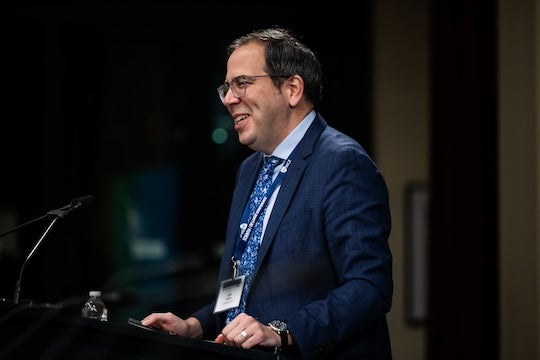
“The intertwining of innovative futures and cultural mythologies highlights how beliefs and frameworks can structure the very ways that we think about scientific and technological futures,” said Luis Campos, Baker College Chair for the History of Science, Technology and Innovation, faculty scholar at the Baker Institute and conference chair, in his opening remarks. “The walls of this building are inscribed with inspirational phrases to be a bridge between the world of ideas and the world of action. We might well ask: What futures are created when we all ‘raise a meaningful voice,’ to quote the inscription on the walls — and especially when we don’t agree? History, communication and governance become all the more important. Evidence matters of course, and so does power and influence. But so does context, narrative and frame.”
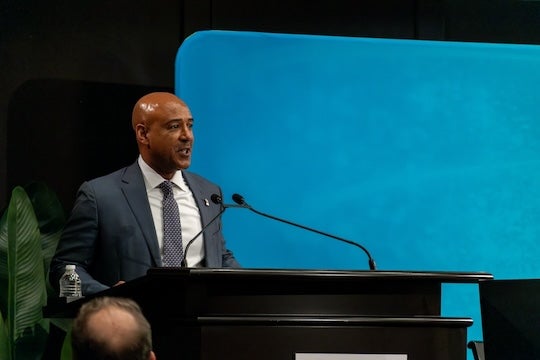
“The De Lange Conference has always explored matters of great importance and provided people with the knowledge and tools to better understand such issues in powerful and effective ways,” Rice President Reginald DesRoches said during his opening remarks. “What’s especially exciting about this year’s conference is that it highlights work that’s being done in these areas across many, many different disciplines. And it addresses these questions as not only scientific problems but as inescapably social ones as well — as highlighted in the question, ‘Who decides?’”
The first panel, titled “Ever Since Asilomar: Past, Present and Future Implications,” addressed the Asilomar Conference on Recombinant DNA as the 50th anniversary of this landmark event approaches. The Asilomar meeting was an influential conference at the dawn of genetic engineering organized by prominent molecular biologists to discuss the potential biohazards of an exciting new biotechnology, held in February 1975 at the Asilomar Conference Grounds on the Monterey Peninsula of California.

During this panel, Rogers recounted his experiences covering the conference in person as a young science writer for Rolling Stone. His focus was to capture the human element of the recombinant DNA controversy.
“Asilomar couldn’t happen today,” Rogers said. “It was really a crystallized moment. But it was a crystallized moment that I think showed some of the ways forward — the notion that you need a scope and you need a structure that allows a lot of interaction among smaller parts of the group.”
Arnold’s keynote address on the conference’s first day, titled “The Potential Impacts of Directing Evolution,” detailed her research regarding the directed evolution of enzymes and mankind’s relationship with the vast potential design space of life on Earth.
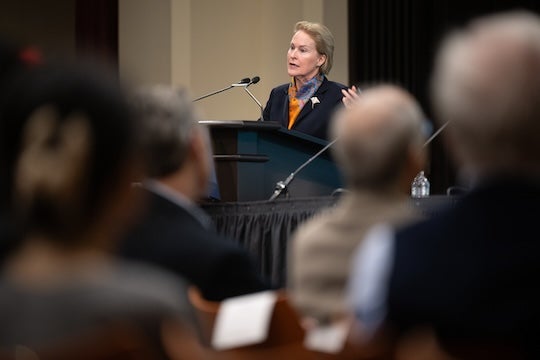
“We have this brave new world where we can move evolution into the future and we can do chemistry that no one thought was possible for biological systems to do,” Arnold said. “And so therefore, we can build whole new biological futures. And what this conference is about is: Who should do it and what can we do? I find that fascinating.”
The second panel focused on synthetic biology and featured a talk from industry leaders from Ginkgo Bioworks, the head of Rice’s new Synthetic Biology Institute, a sociologist of global governance as well as science journalist Antonio Regalado, senior editor for biomedicine with the MIT Technology Review.
Regalado spoke about his experiences as a reporter, which included breaking the story of the “CRISPR babies” in China — the first instances of the genome editing of children — and appearing in the documentary films “Make People Better” and “Human Nature.” “Make People Better” was screened at the Rice Cinema later that evening, and Regalado held a Q&A session with the audience.
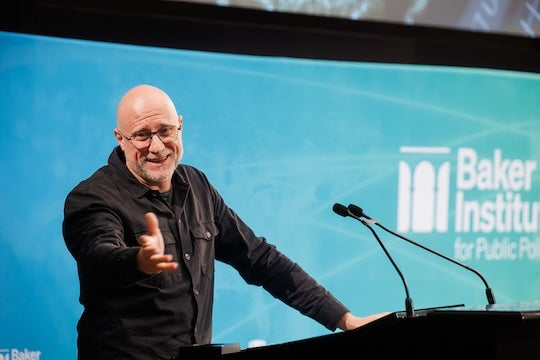
On the second day of the conference, the third and fourth panels focused on the uses of data and surveillance issues and climate change, respectively, and included enthralling artistic interventions from Paglen and Jiabao Li.
Paglen’s captivating presentation explained his “dead internet theory” and the widespread effects of artificial intelligence, facial recognition and internet algorithms. He also detailed his research on the CIA’s Project MKUltra and its legacies for contemporary disinformation techniques, and even offered a thought-provoking characterization of UFOs as a form of classified government psychological operations or “psyops.”
For her part, Li examined the experiences of other species and how they compare to humanity. Through artistic experimentation with animals like squid and mice, she explored the ways in which art can engage with the more-than-human world with examples ranging from artistic geographies of migration to personal fitness goals challenging humans to run as frequently and as often as mice. As part of her contribution, she offered a food-based “Taste of the Anthropocene” that ranged from big-bang chocolates that explode and foam up in attendees’ mouths to on-site, custom-made edible sugar balloons filled with helium, inspired by the “soma” pleasure-inducing drug at the heart of Aldous Huxley’s “Brave New World.”
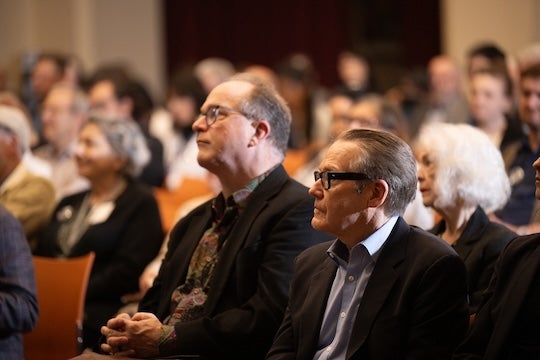
“I am so full of gratitude, I have so many insights and I’m so much richer from hearing from all of our speakers than I would ever have imagined possible,” Campos said. “Juxtaposing such different forms of expertise and practice and engaging directly with the difficulties of talking across fields and trying to understand worlds and ways of approaching questions that are deeply unfamiliar to us I think has been one of our goals here. And as one of our speakers pointed out, we have come to recognize the importance throughout how all of our approaches to the futures we craft must account for diverse understandings of the good.”
Endowed by Hank and Demaris Hudspeth to provide a forum for issues of great concern to society, the De Lange Conference is an initiative of Rice’s Scientia Institute, a faculty-led consortium that promotes multidisciplinary engagement to benefit the university and the Houston community at large.
Photos and video of the conference can be found here.
